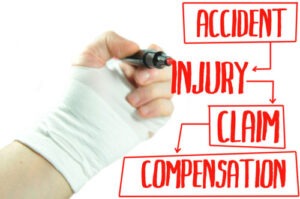
Florida has long been one of the first choices for states where elder adults choose to retire. The state’s Department of Elder Affairs estimates that more than 25 percent of Florida’s population is elderly, defined as over age 60. Some elders live independently, but others rely upon friends, family, or in-home caregivers to help them with their daily routines. Those elders who can no longer live independently live in assisted care facilities or long-term nursing care facilities. Unfortunately, all of these situations provide an opportunity for the elders we love to be abused.
Elder abuse not only causes physical pain for victims, but also often includes emotional distress from the trauma of abuse. Although elder abuse can be a one-time event, it’s more commonly an ongoing series of events. Sadly, the vast majority of elder abuse goes unreported. Victims often fear retribution for speaking out. The elder you love might not tell you of the abuse, making it crucial for you to pay attention to the signs and symptoms of abuse.
If you suspect an elder you love is suffering physical, emotional, or financial abuse, you need to report the abuse as soon as possible. Not only will you protect your loved one, but you can prevent future abuse by the same perpetrator. This guide provides you with steps for reporting elder abuse in Florida, regardless of whether someone is receiving care at home or living in a nursing home. We also provide Florida’s legal definition of elder abuse and signs and symptoms, which should at least inform you of when to investigate a situation further to check for abuse.
Helping the Elder You Love When You Suspect Abuse
Before taking any legal action for elder abuse, keeping the elder whom you love safe and removing him or her from the abusive situation should be your top priority. If you know an elder is being abused or suspect abuse, you can take the following actions to stop the abuse and support any criminal or civil actions taken against the perpetrator.
Call 911
If you see an elderly person in immediate danger, whether or not you know the individual, call 911 immediately. Police will come to the scene and investigate the report. In some cases, this can lead to an immediate arrest of the perpetrator. If the abuse has resulted in severe physical injury, the victim will likely go to the nearest emergency room.
Report Abuse to the Facility
If your loved one is residing in an assisted living facility or nursing home, you need to inform the facility about your suspicions. Start with the charge nurse on duty during your visit. You should also inform the administration of the suspected abuse. Make sure to put your report in writing, so the administration can’t claim that they never knew about the abuse.
You should keep any correspondence between you and facility administration in writing. Reporting abuse to the facility also allows them to offer better and additional training to caregivers. More importantly, the administration can strictly monitor caregivers or take immediate action and suspend the employee until an investigation is completed.
Keep Meticulous Records
Whether the elder you love is receiving in-home care or residing in some type of long-term care facility, you need to document everything and keep meticulous records. Write down the date, time, and substance of any conversations that you’ve had with your loved one about neglect, abuse, bruises, and injuries.
When you speak with the administration about an injury you notice, you should expect that they can give you an answer about what happened. The lack of explanation suggests a lack of supervision at the very least, but can also suggest outright abuse. You should also write down dates and times that you notice any common symptoms or signs of elder abuse, which we will cover in more detail below.
Take Photos
Sometimes when you report elder abuse, you know it has occurred. Other times, you only suspect abuse. Maybe your suspicion is unfounded, or perhaps the facility or in-home caregiver will make excuses or try to cover up injuries. It’s difficult to prove emotional abuse, but you should always try to get any evidence you can to support physical abuse. If it is appropriate, you should take photos of any visible injuries and any conditions that put your loved one in danger or suggest neglect. Photographic evidence can go a long way in holding perpetrators accountable for their actions.
File a Complaint With Each Relevant Agency
Depending on your loved one’s situation, you can file a complaint with several of Florida’s state agencies to ensure the abuse stops and the abusers are held accountable. Each agency serves different purposes, but many agencies work together; some also work with law enforcement when criminal conduct has occurred.
Below we provide each agency, its purpose, and how you can contact each when an elder you love has been abused.
- The Florida Department of Children and Families (DCF) accepts telephone calls and online reports about vulnerable adults who have been abused. You can call its Abuse Hotline at 1-800-962-2873 or fill out an online form. DCF has counselors available 24 hours per day, seven days per week. The Florida Department of Elder Affairs also works with DCF to help those suffering from abuse.
- The Agency for Health Care Administration regulates and licenses Florida’s nursing homes and other long-term care facilities. You can file a consumer complaint online here, or you can call them toll-free from 8 a.m. to 6 p.m. at (888) 419-3456. The local field office will inspect within two days if it believes that a resident is in immediate danger, and officials will notify you once they have completed their inspection.
- The Florida Attorney General has a Medicaid Fraud Control Unit, which also accepts reports about abuse, neglect, and exploitation of the elderly. You can contact the Unit by phone at (866) 966-7226. This can be helpful if the elder you love has suffered financial exploitation or his or her care facility has committed some type of Medicare fraud. In cases of physical and/or emotional abuse, the Office of the Attorney General will likely refer you to DCF.
- The Florida Board of Nursing is responsible for licensing, monitoring, and disciplining registered nurses and certified nursing assistants. You can file a complaint with the board to make sure that the person or people who abused your loved one face professional consequences for such actions. Technically, you file these types of complaints with the Florida Department of Health. The department will investigate your complaint and will take action depending on what it finds. Some of the consequences that nurses and nursing assistants may face include fines, forced education, probation, suspension, or license revocation.
Expect More, Receive More: Legal Support That Feels Like Family
What Is Elder Abuse Under Florida Law?
You probably have a good idea of what constitutes elder abuse, but the word abuse is thrown around in many different ways. To report elder abuse and potentially take legal action against the perpetrator and his or her employer, if applicable, you must understand Florida’s legal definition of elder abuse. Under Florida law, elder abuse is a broad categorization that includes physical, emotional, and verbal abuse, as well as neglect and exploitation, sometimes referred to as financial abuse. Below we provide examples of each type of elder abuse:
Physical, Verbal, and Emotional Abuse
A person or facility who engages in any of the following has committed elder abuse:
- Intentional harm. If a caregiver, in a facility or at home, willfully harms an elder, that constitutes elder abuse under Florida law. Examples include slapping, hitting, shoving, kicking, sexual assault, humiliation, intimidation, making verbal threats, and the mental anguish resulting from physical abuse. Caregivers who administer the silent treatment, ignore elders, and seclude them from others are also considered abusers under the law.
- Intentional acts. Florida law also considers any willful acts that can be expected to cause harm as abuse. The overuse or misuse of chair restraints and bed restraints during care is the most frequently cited example. The use of restraints doesn’t immediately harm a resident, but after some time, emotional and physical harm can occur.
- Encouraging harm or harmful acts.Any caregiver who encourages or enables another to harm an elder has also committed elder abuse. Medical professionals have a legal duty as mandatory reporters to stop such abuse. Those who encourage abuse are as guilty as those who commit the abuse in the eyes of the law.
Neglect
Florida law states that caregivers who don’t provide elders with the items that they need for their mental and physical health are guilty of neglect. Specifically, neglect is failing to give care, adequate supervision, or medical treatment. Some examples of neglect as a form of elder abuse include:
- Failure to supervise. Some elders need more care than others. Whether at home or in a nursing home, caregivers have a duty to provide adequate supervision to those who need it, especially elders who suffer from dementia or have certain physical limitations. Elders left alone to their own devices when they really need help risk a dangerous, possibly deadly, slip and fall accident.
- Failure to provide clean clothes. Caregivers must ensure that elders have good hygiene, including clean undergarments and clothing each day (or more if necessary).
- Failure to provide items for personal grooming. Good hygiene also means caregivers need to help elders brush their teeth or clean their dentures, bathe or shower, comb their hair, and help them with any other hygienic tasks. Failure to do so can result in infections, bedsores, parasites, and more.
- Failure to provide proper nutrition. Elders need the proper amount of water and food to avoid dangerous conditions, such as skin conditions, kidney problems, and loss of bone mass. Withholding food or water can be a form of physical abuse, but it’s more often associated with neglect.
- Failure to properly give medication. Aging often means taking more medications. Some prescriptions are required for medical conditions, but others are necessary for short-term sickness. In any case, when caregivers fail to provide the medication that an elder needs, the consequences can be fatal. Examples of things that might occur include strokes, seizures, and heart-attacks. Giving an elder too much medicine can cause dizziness, weakness, and nausea.
Financial Abuse
Financially abusing an elder can devastate victims and their families. This type of elder abuse occurs more frequently when care occurs in the home than in nursing homes. Some examples of activities that fall under the umbrella of financial exploitation include depriving elders of their assets and money or attempting to deprive them of such, embezzling money from an elder, committing fraud, misusing an elder’s funds, and abusing an elder’s power of attorney.
Signs That Your Loved One Might Suffer From Elder Abuse
Perhaps the elder you love told you about abuse, or you witnessed it first-hand. Other times, you may suspect abuse but can’t be sure. Physical symptoms and signs of financial abuse are easier to detect than emotional symptoms, which can have other causes. Here are some signs and symptoms of elder abuse to look for, but remember that these signs don’t necessarily mean that your loved one has been abused.
However, if you notice these signs, then you should consider investigating any potential abuse, particularly if you notice more than one of the following:
- Unexplained bruises or marks on the body
- Odorous clothing and body
- Consistent bad breath
- Pale, ghostly skin
- Bedsores
- Hesitation speaking to you in front of caregivers
- Changes in mood and behavior
- Excessive weight loss from malnutrition
- Sunken cheeks from dehydration
Financial abuse can be easy to spot if you know where to look. Some signs of financial abuse include:
- Money missing from accounts
- Unauthorized change in address on credit cards and bank accounts
- Abnormal credit or debit card activity
- A drastic change in credit score
- Missing valuables
- Unpaid bills and letters from collection
When to Consult an Elder Abuse Attorney
If an elder you love was abused or neglected, Florida law allows him or her to sue for damages in civil court, or for some family members to do so on the elder’s behalf. Reporting the abuse can result in both criminal and professional consequences for abusers, but they also need to financially compensate their victims. An elder abuse attorney who understands the laws specific to your situation can help hold the perpetrator financially liable.






